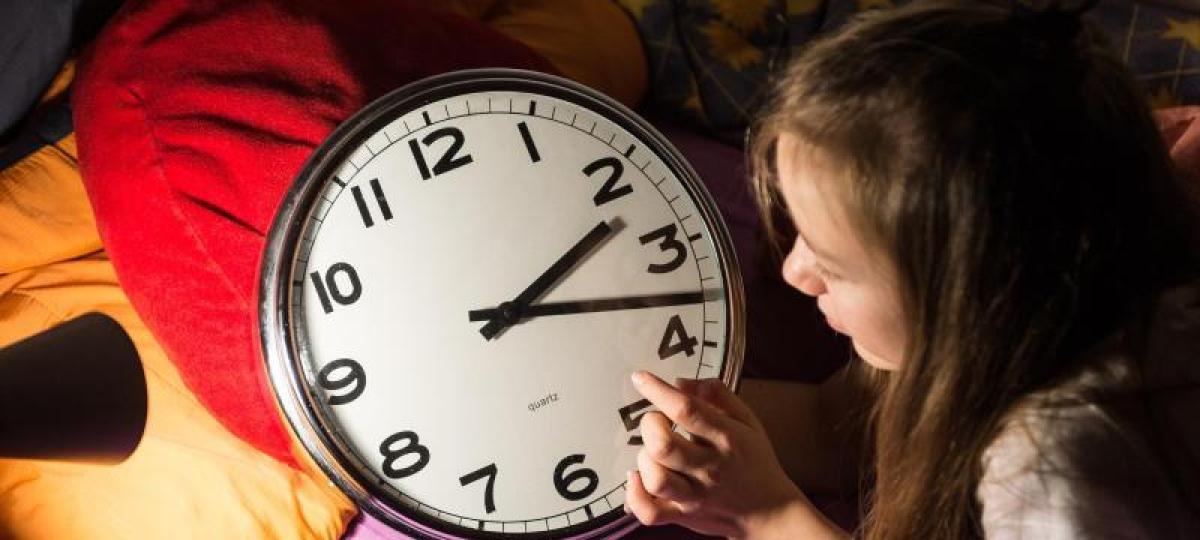How to prepare them for it

Twice a year – in spring and autumn – the clocks are changed in Germany. Actually that should Time change can be abolishedbut it has not happened so far. So in March it is so far again and From 30 to March 31, 2024 the pointer is turned forward for an hour. This switch to summer time is creating both children and adults. You can find out why this is and how you can prepare your children and yourself as best as possible.
How does the time change affect the body?
The time change affects the body, because because the clock is put forward from Saturday to Sunday one hour is stolen for an hour, says sleep researcher Hans-Günter Weess. He heads the interdisciplinary sleeping center on the Palatinate Clinic Klingenmünster. « That may not be the topic on Sunday because many people can sleep longer, but the hour is noticeable on Monday at the latest. »
The past few years have shown that the risk of accidents on Monday after the time change had increased significantly, says Weeß. And health risks would also increase. In the following week, significantly more people with cardiovascular diseases were brought to hospitals than compared to the remaining weeks of the year. « The time change makes people tired, more inattentive and not as powerful, » explains the sleep researcher.
In addition, people are also pushed back by three to four weeks in the season, because at 7 a.m. it is suddenly dark again, says Weess. In general, summer time is not particularly good for man’s light-dark rhythm, because in the evening it is bright until 10 p.m., so that people are missing the body’s sleep messenger melatonin, which is only formed when it is dark. « This means that we do not come to rest. In the morning, the alarm clock rings anyway and so a sleepy society arises, » explains the sleep researcher.
Who is particularly affected by the consequences of the time change?
Basically, all people are affected, says Weeß. Some notice it less, others more. But especially those who have a firm sleep-wake rhythm would feel the time shift. Because if you are used to fixed times, the internal clock will be adjusted. This particularly includes children, the elderly and people with sleep disorders.
The changeover to summer time is much more difficult for us than winter time, since « we are not stolen for an hour in autumn, but is given ».
How can children be prepared for the time change?
In children, it is the be -all and end -all to anticipate the time change. According to the sleep researcher, this works best by bringing children to bed between ten and 15 minutes earlier four to five days earlier. You should get up the same time in the morning.
In order for this to succeed, children should come down in the evening and not romp until the end. It is best for a bed ritual for this, such as a good night story. To do this, the light should be steamed. In addition, children should be exposed to less light about an hour before the bedtime, above all blue light from screens and LEDs should be avoided. In this way, melatonin can then form in the body and the tiredness begins.
Weeß advises children who can already read the clock to explain why the sleep and wake-up time changes. In the case of smaller children, he does not think this is necessary and should simply be taken over in the routine.
How can adults prepare for the time change?
Adults should also go to bed ten to 15 minutes earlier about four days before the time change and then get up ten to 15 minutes earlier.
In addition, the sleep researcher advises small naps, which should not take longer than ten to 20 minutes, otherwise it could happen that you feel tired afterwards than before. This short break is enough to be more powerful and creative again.
According to Weess, however, it should be noted that the afternoon nap will not be done after 3 p.m., because then the sleep pressure is dismantled and it is more difficult to fall asleep in the evening.
Stories are also suitable for fainting for adults, for example audio books, guided fantasy stories, but also fairy tales and stories for children. That gives a feeling of security and « rolls out the red carpet for sleep ». However, you should never put yourself under pressure when sleeping, because: « If you want to sleep, you stay awake. »
Regardless of the change of time, the sleep researcher advises the short midday nap because they are very healthy. They can be integrated into the lunch break. If the quick falling asleep should not work straight away, you should stay relaxed: « If you want to take a nap regularly, you will learn that over time. »
How long does it take to get used to the time change?
According to the sleep researcher, adults who have a healthy sleep need one or two, at most three days to adjust to the new time.
Children, older people and people with sleep disorders, on the other hand, need around a week, in exceptional cases for up to two weeks.






:format(webp)/s3/static.nrc.nl/wp-content/uploads/2025/06/05221551/web-0506BIN_Jonge.jpg)
